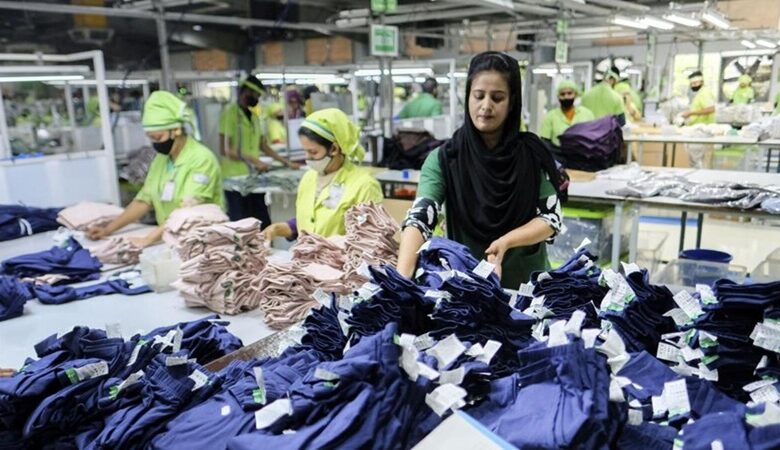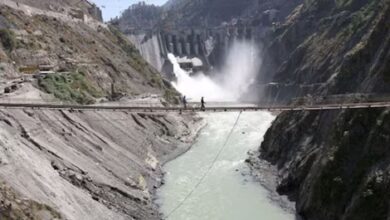New limitations on imports from Bangladesh, including prepared garments.
News Mania Desk / Piyal Chatterjee / 20th May 2025

On Saturday, India limited imports of ready-made garments from Bangladesh to the ports of Kolkata and Nhava Sheva and prohibited the importation of various consumer goods via 11 land border posts in the northeast due to measures implemented by the neighboring country, according to sources familiar with the situation.
The action from the Indian side occurs just over a month after New Delhi terminated an almost five-year-old agreement for the trans-shipment of Bangladeshi export goods to third nations through Indian airports and ports amid strained relations between the two parties.
According to the regulations specified in an official announcement from the Directorate General of Foreign Trade, Bangladeshi ready-made garment (RMG) exports will be permitted solely via the ports of Kolkata and Nhava Sheva. This action is anticipated to greatly influence Bangladesh’s yearly RMG exports to India, which amount to approximately $700 million, with 93% of these products being transported via land ports.
The limitations disclosed on Saturday will not be relevant to Bangladeshi products passing through India en route to Bhutan and Nepal. Exports from Bangladesh of various consumer products and other items, including ready-made garments, plastics and PVC finished items, wooden furniture, carbonated and fruit-flavored beverages, processed foods like bakery and confectionery items, as well as cotton and cotton yarn waste, will be prohibited at 11 land customs stations and checkpoints in Mizoram, Assam, Tripura, and Meghalaya, along with the Phulbari and Changrabandha posts in West Bengal, according to sources.
Besides, Bangladesh stopped yarn exports from India through land ports from April 13, 2025, and Indian exports are subjected to rigorous inspection, thereby causing substantial delays, the people said. Indian rice exports too were barred through Hili and Benapole ICPs from April 15, 2025).
“Locally manufactured goods from the northeastern states don’t have access to Bangladeshi markets because of land port restrictions imposed by Bangladesh,” one of the people said. “On the other hand, Bangladesh has free access to the entire market in the northeastern states, creating an unhealthy dependency and stymieing the growth of manufacturing in the region.”
“All the decisions made by the Indian side are on the basis of equality and fairness. India offered more than what would be expected under the principle of reciprocity, and this has not been reciprocated by Bangladesh,” a second person said.
“The Bangladeshi side can’t take market access for granted, and they can’t cherry pick items that they will allow through land ports,” he said. “They have not been allowing value-added items from the northeastern states, while they were exporting such items to the northeast.”
The individuals clarified that the limitations will extend to the Changrabanda and Fulbari LCSs in West Bengal to stop the diversion of Bangladeshi exports to the Northeast through the Siliguri corridor.
The initiatives are also designed to bolster local production in the northeastern states, and the specified list of products will be assessed to guarantee fair and even growth in these regions in accordance with Central government programs, they mentioned. The limitations declared on Saturday will not be applicable to goods from Bangladesh passing through India to Bhutan and Nepal.
In FY24, two-way trade reached a value of $12.90 billion, making Bangladesh India’s largest trading partner in the region. India ranked as Bangladesh’s second largest export partner, representing 12% of overall exports. In FY24, India exported goods valued at $11.06 billion to Bangladesh, while imports from Bangladesh reached $1.8 billion in that same period.
The tension in trade relations between India and Bangladesh arises amid strains in the broader relationship. Bilateral relations have plummeted since the former prime minister Sheikh Hasina was removed after weeks of student-led demonstrations last August, and the interim government led by Muhammad Yunus took over. India has consistently called on Bangladesh to halt the oppression of minorities, particularly Hindus, and voiced worries over a rise in radicalisation.
Yunus’s comments, which seemed to exploit the geographic seclusion of India’s northeastern states to attract Chinese investments, were not well received in New Delhi either. While speaking at a business meeting during his trip to China, Yunus mentioned that India’s northeastern region, which is landlocked and borders Bangladesh for almost 1,600 kilometers, can only access the ocean via his nation.
“This opens up a huge possibility, this could be an extension of the Chinese economy,” Yunus said.
In a riposte to Yunus, Prime Minister Narendra Modi subsequently said that India’s northeastern region, with its geographical location, “lies at the heart of Bimstec”.






